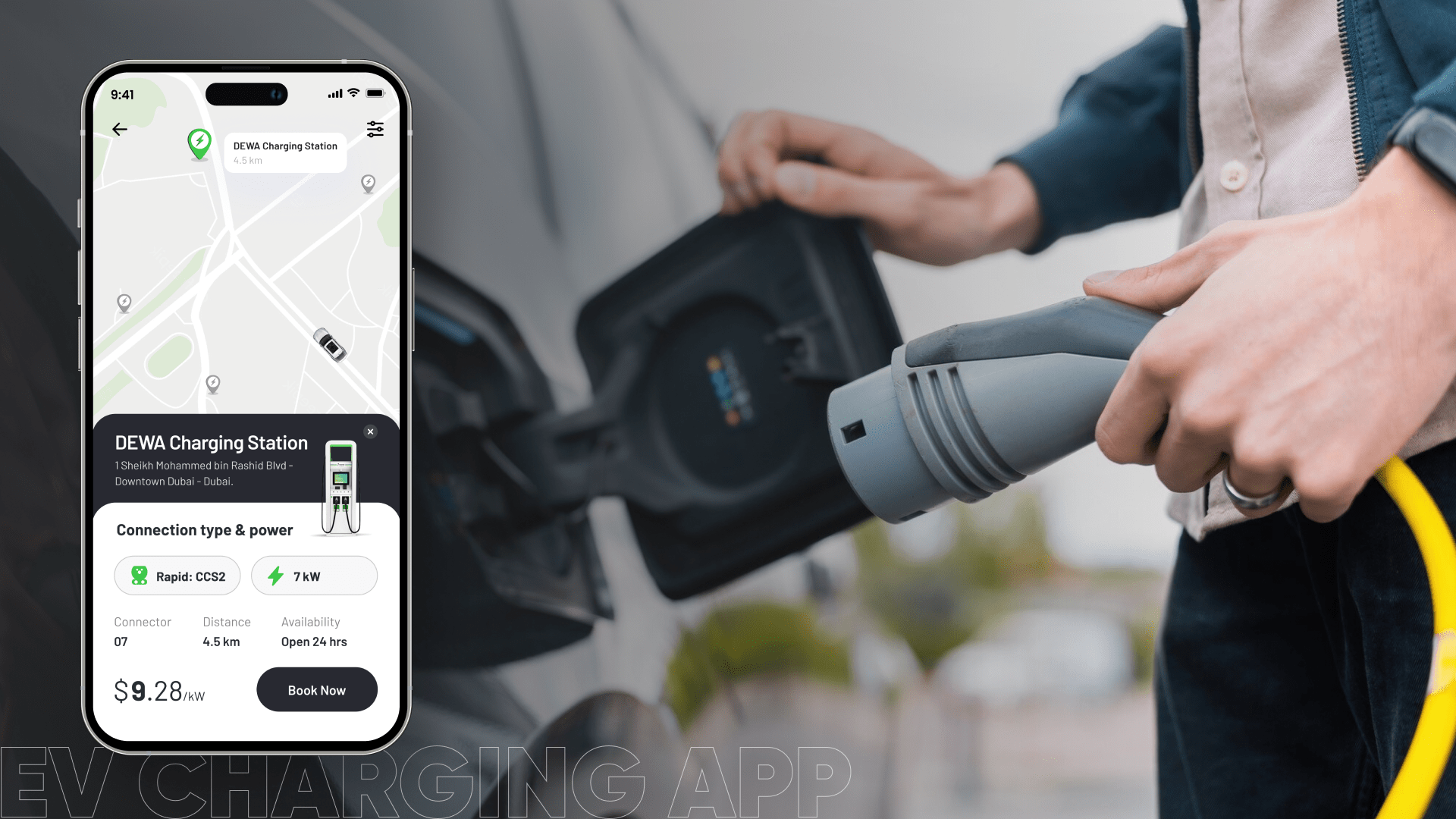Revolutionizing EV Charging with a Scalable Mobile App
The electric vehicle (EV) industry is expanding rapidly, driven by rising demand for sustainable transportation and global commitments to reduce emissions. As more EVs enter the roads, one major challenge continues to limit growth: charging accessibility and user experience. Although the number of charging stations is growing, the digital systems that support them often fall short of modern user expectations.
To keep pace with this shift, there’s a growing need for smarter tools that improve how drivers find, use, and pay for EV charging services. This is where EV charging app development plays a critical role. Mobile apps designed specifically for managing EV charging bring together real-time station data, seamless payments, route planning, and remote charging controls—all in one place. They’re not just convenient for drivers; they’re essential for building a scalable and connected EV charging infrastructure.
With strong, user-focused software in place, the EV industry can overcome many of today’s pain points. Effective EV charging management software helps unify the charging experience, supports network growth, and makes clean mobility more accessible for everyone.
The Challenges Facing EV Charging Today
The rise in EV adoption is exciting, but it also brings a new set of challenges that can’t be solved by hardware alone. Without a robust digital infrastructure, the charging experience becomes fragmented. Four major issues continue to challenge the EV ecosystem:
1. Limited Real-Time Access to Charging Stations
Many EV drivers struggle to find available stations, often relying on outdated or inaccurate information. This leads to longer wait times, range anxiety, and frustration.
2. Fragmented Charging Experiences
With different networks using different apps, interfaces, and payment methods, drivers often juggle multiple tools to complete a simple task, like starting a charge or checking availability.
3. Lack of Smart Route Planning
Long-distance EV travel can be stressful without proper planning tools. Most apps don’t take into account real-time battery levels, traffic, elevation, or charging availability along the route.
4. Inconsistent Data for Operators
Charging station providers often lack access to detailed usage and performance data. This makes it hard to manage demand, perform maintenance, or plan network expansion effectively.
These problems highlight the growing need for integrated, scalable digital platforms that serve both users and providers across the EV industry.
What a Scalable EV Charging App Should Offer
To meet evolving needs, a scalable EV charging app should offer a wide set of capabilities that benefit both users and providers:
- Real-Time Charging Station Locator: A smart map interface that shows nearby chargers with live updates on availability, connector type, speed (AC/DC), and estimated wait times.
- Integrated Route and Battery Planning: Dynamic trip planning that adjusts in real-time based on current charge level, route traffic, terrain, and available chargers along the way.
- Seamless Payment Options: Unified payment support across networks, with digital wallets, cards, or subscription models—all in one tap. Transparent pricing and charging history give users full control.
- Remote Charging Management: Drivers can monitor, pause, or stop charging from their phones. Scheduled charging, alerts for completed sessions, and push notifications add extra convenience.
- Cross-Network Compatibility: Supports chargers from different manufacturers and service providers, giving users one consistent experience even when moving between networks.
- Back-End Tools for Operators: Dashboards for station owners or fleet operators offer insights into usage, performance, uptime, and maintenance needs, powered by data from the app.
Building a Foundation for EV Charging Infrastructure
As demand grows, building and maintaining EV charging infrastructure will depend heavily on smart software systems. A scalable mobile app supports this by:
- Helping users locate and reserve chargers efficiently.
- Reducing energy waste through smart scheduling and load balancing
- Providing real-time usage data to improve network performance.
- Allowing providers to manage operations remotely, at scale.
This digital backbone ensures that physical infrastructure is used effectively, maintained properly, and expanded based on real demand, not guesswork.
Real-World Use Cases Across the EV Industry
Urban Commuters
City drivers benefit from apps that help them find nearby chargers during peak hours, reserve time slots, and get notified when their EV is ready to go—all with minimal effort.
Highway Travelers
Long trips become easier with intelligent route suggestions and battery-aware planning. The app adapts in real time, suggesting alternate charging stations if others are busy or offline.
Fleet Management
Delivery companies, ride-sharing fleets, and corporate EV users can track energy usage, optimize charging schedules, and manage hundreds of vehicles from one dashboard.
Charging Network Operators
Station owners and providers can reduce downtime, plan maintenance, and analyze charging behavior to improve revenue and user satisfaction.
Technology Behind Scalability
To support a growing user base and a constantly expanding network of stations, EV charging apps must be built on strong, scalable technology foundations:
- Cloud-native infrastructure allows the app to scale quickly with demand.
- Modular architecture enables easy updates and feature expansions.
- Open APIs ensure compatibility with a wide range of chargers and systems.
- Cross-platform support delivers a consistent experience across Android and iOS devices.
- Secure data handling ensures compliance with privacy laws and builds user trust.
These principles form the core of reliable EV charging management software, designed to grow with the industry.
Conclusion
The shift toward electric vehicles is more than a change in engines—it’s a complete transformation in how people interact with transportation. As the EV industry matures, the importance of smart, scalable, and user-friendly software will only grow.
A well-built EV charging app isn’t just helpful—it’s essential. It connects drivers to infrastructure, gives providers the tools to grow, and helps cities prepare for a future built around clean energy.
By focusing on intuitive design, real-time data, and seamless integration, building an EV charging app can drive the next phase of mobility, where charging is effortless, efficient, and truly integrated into everyday life.












